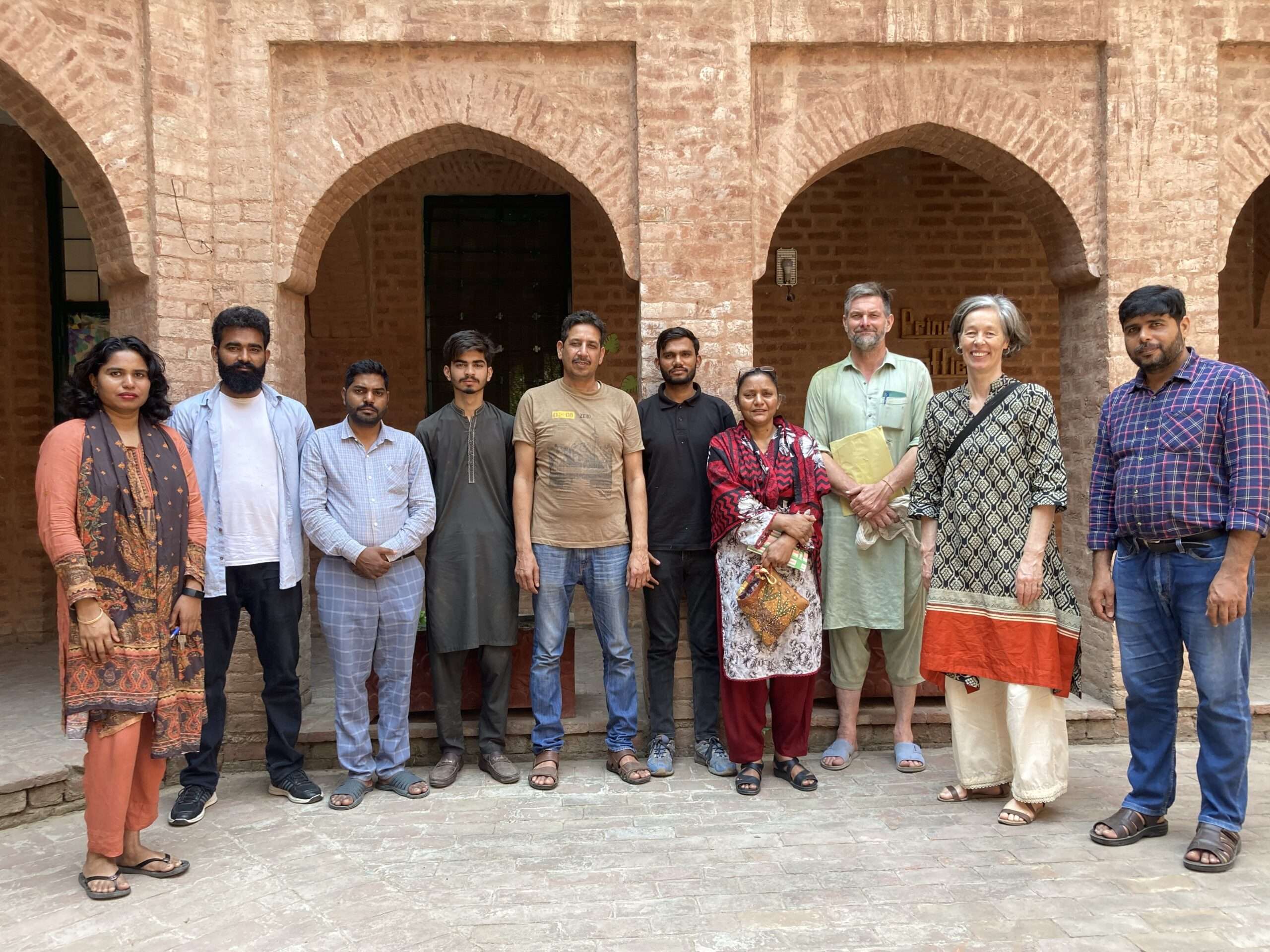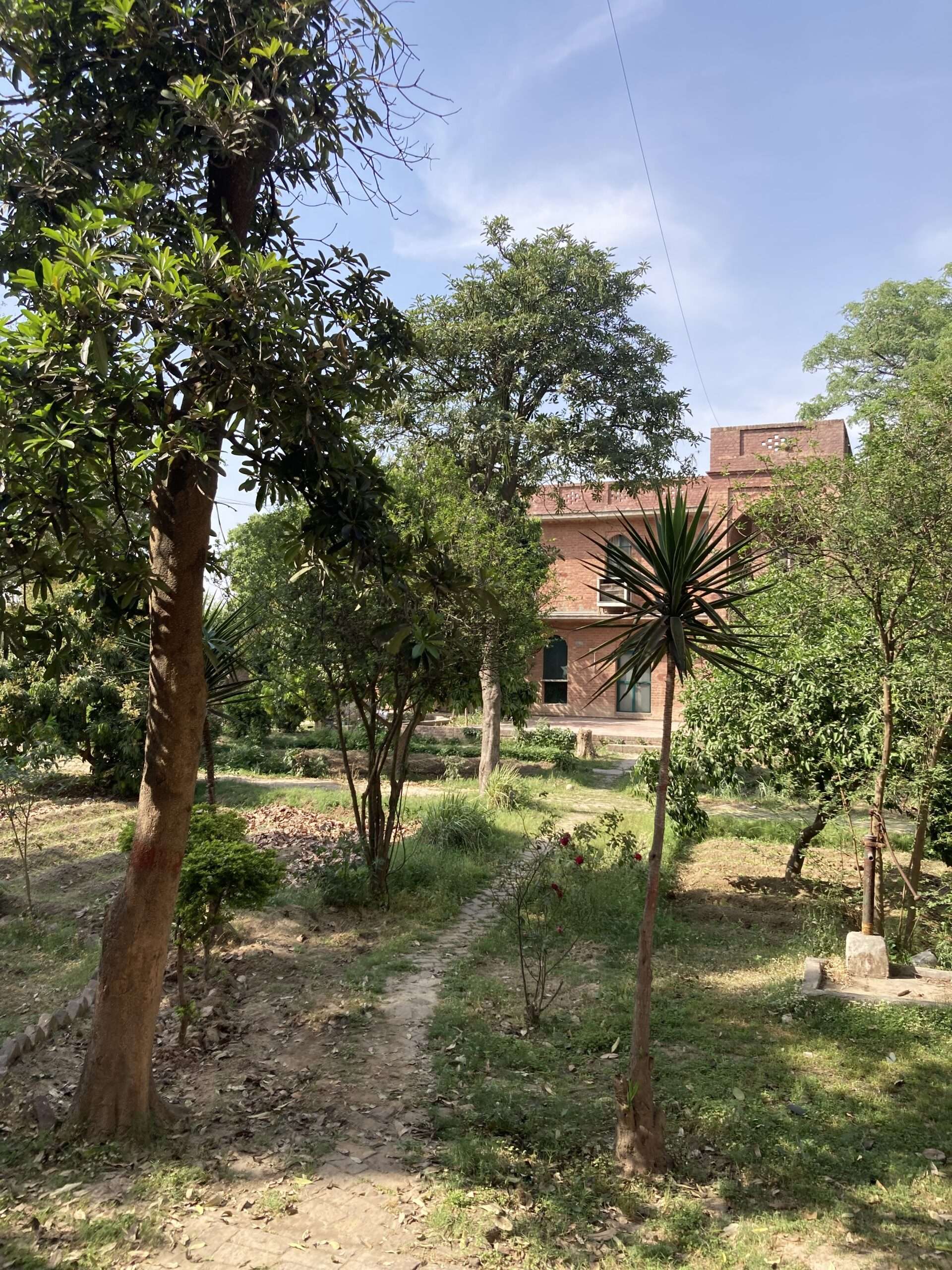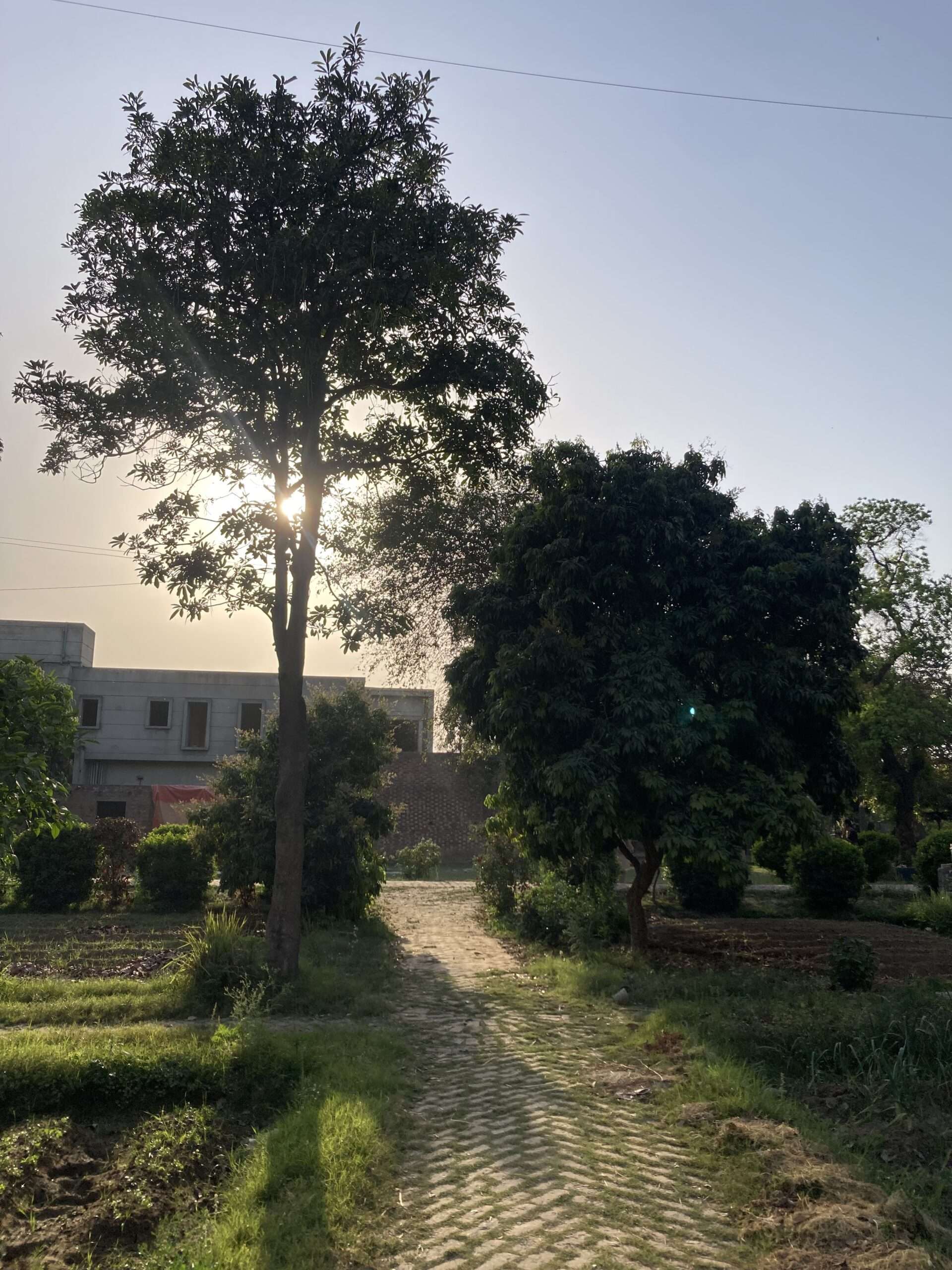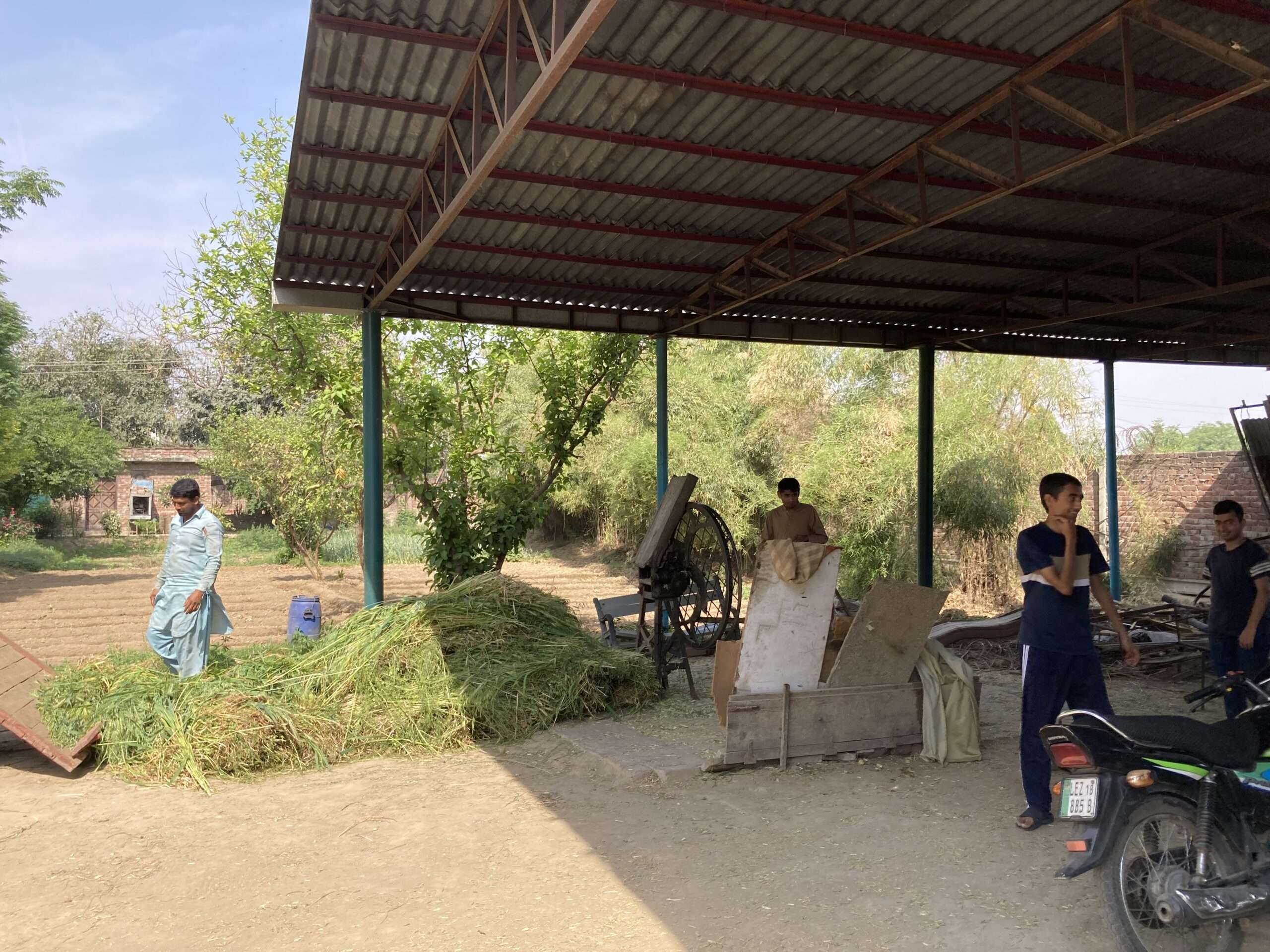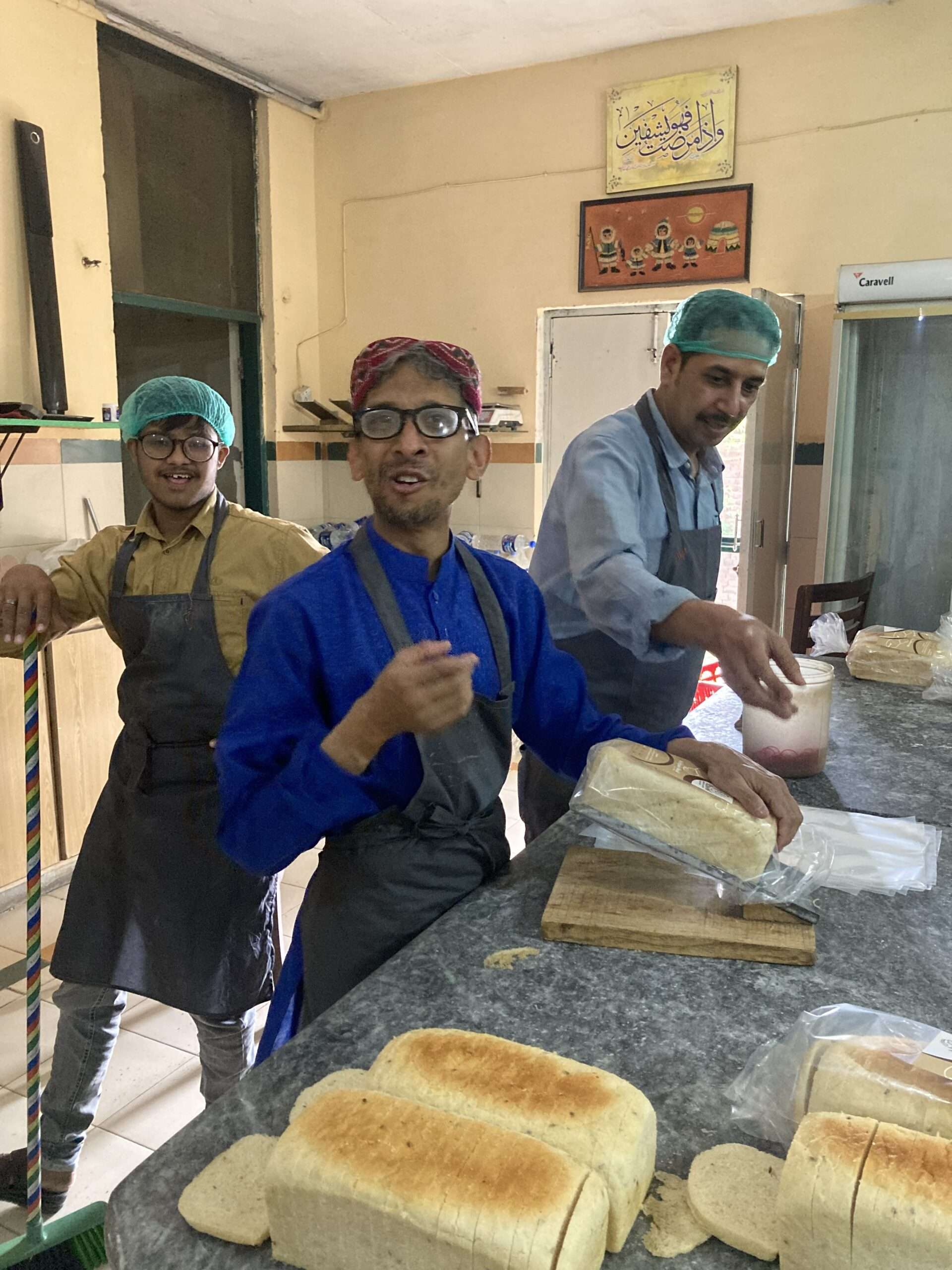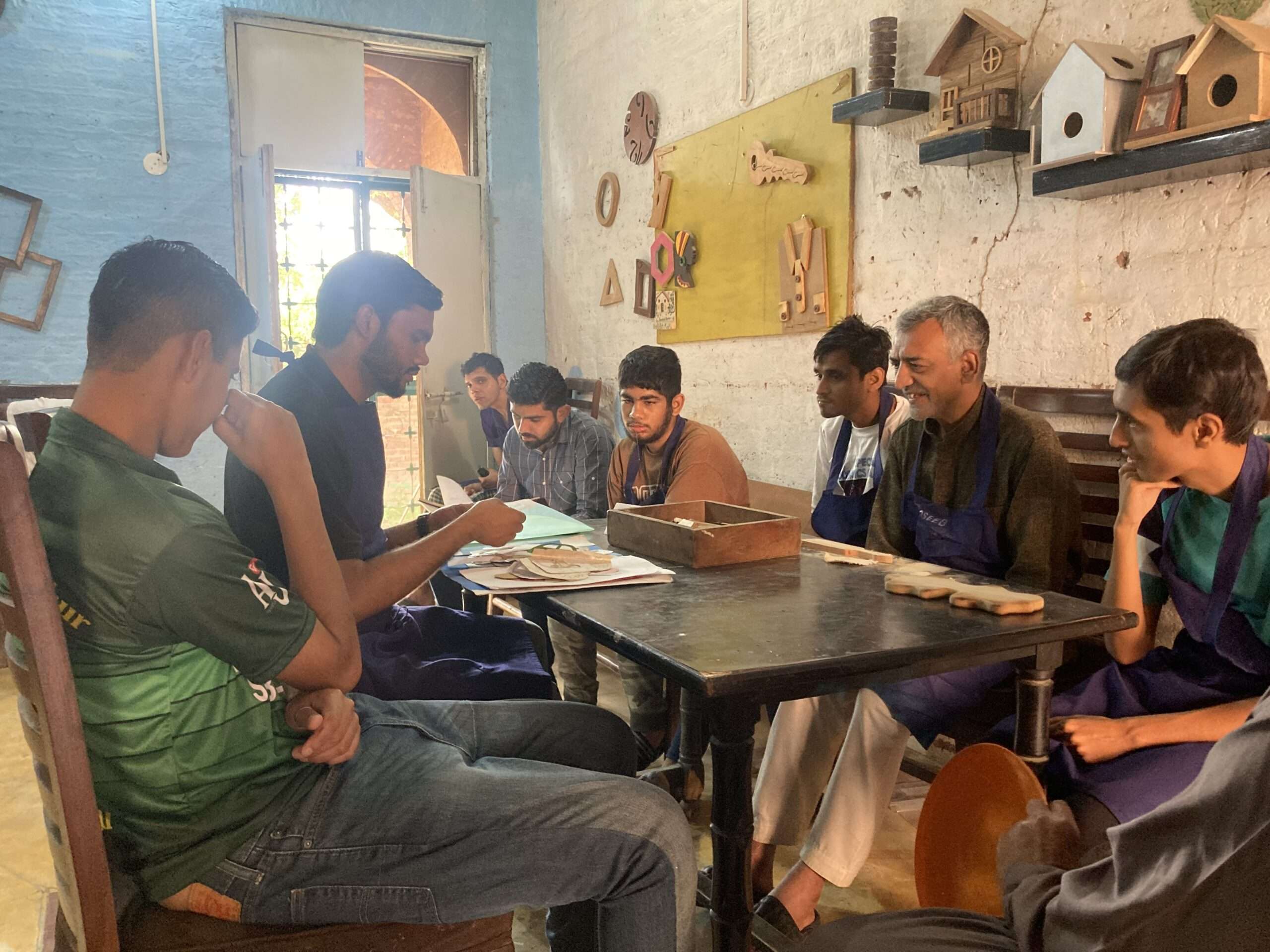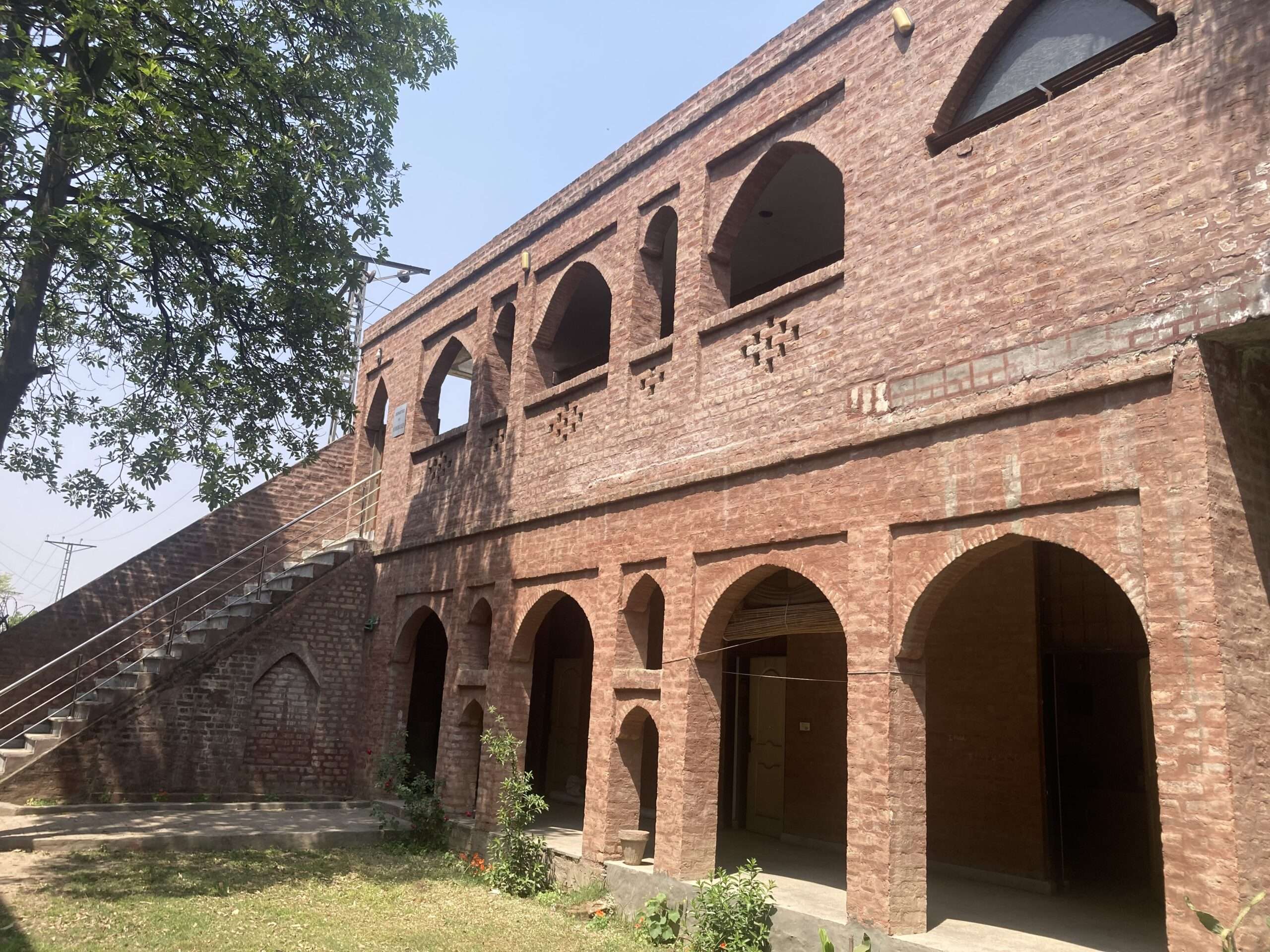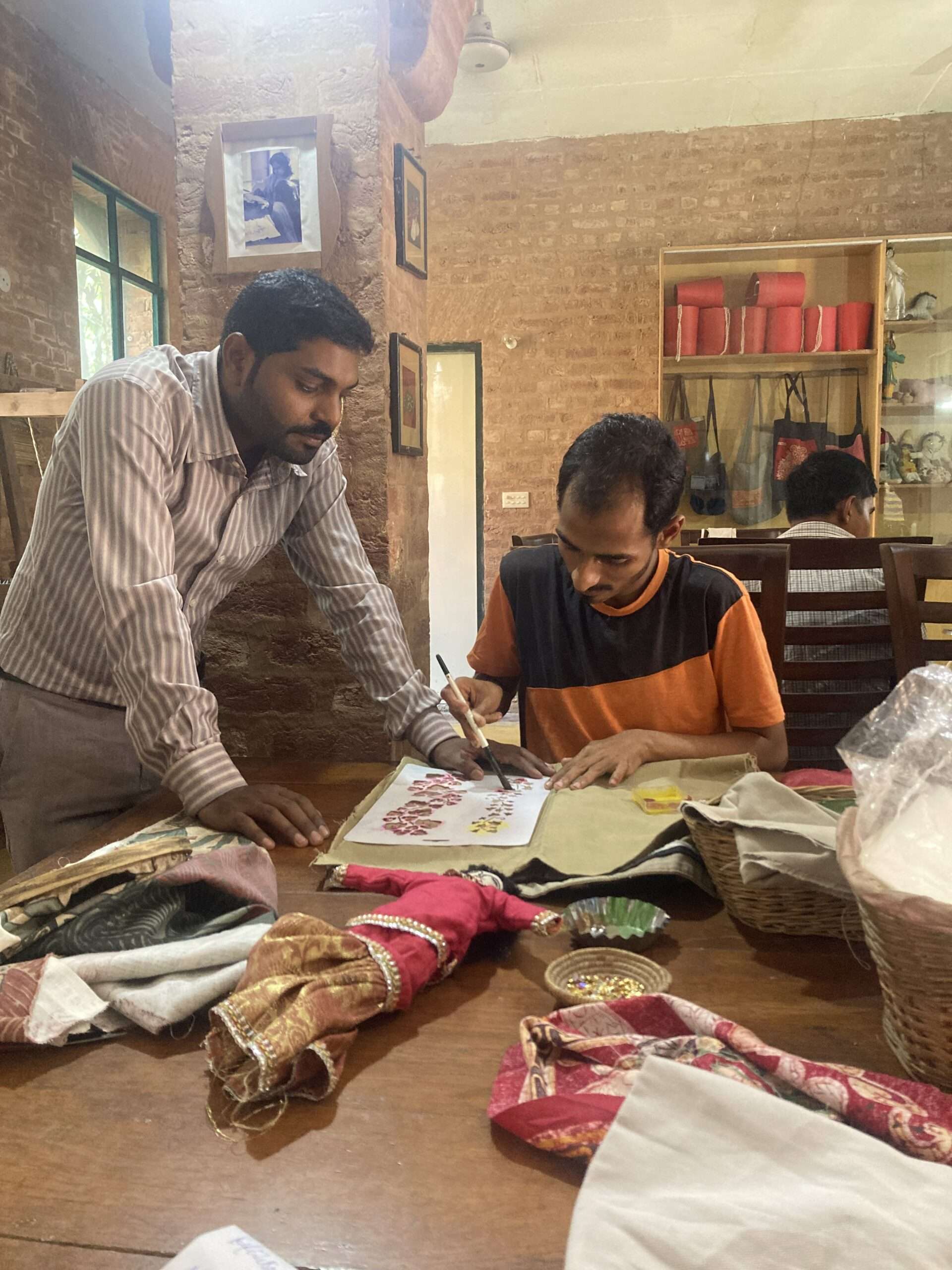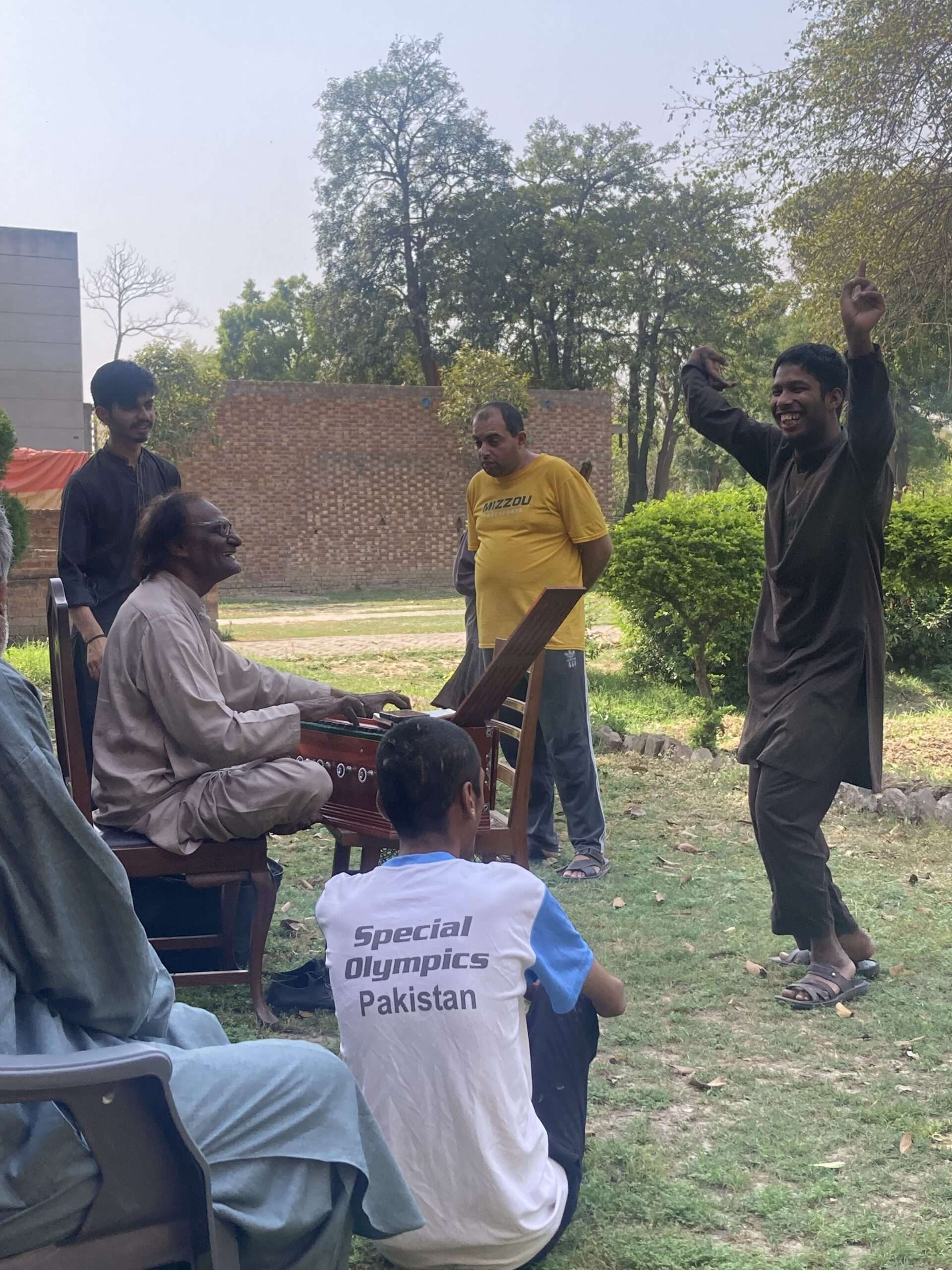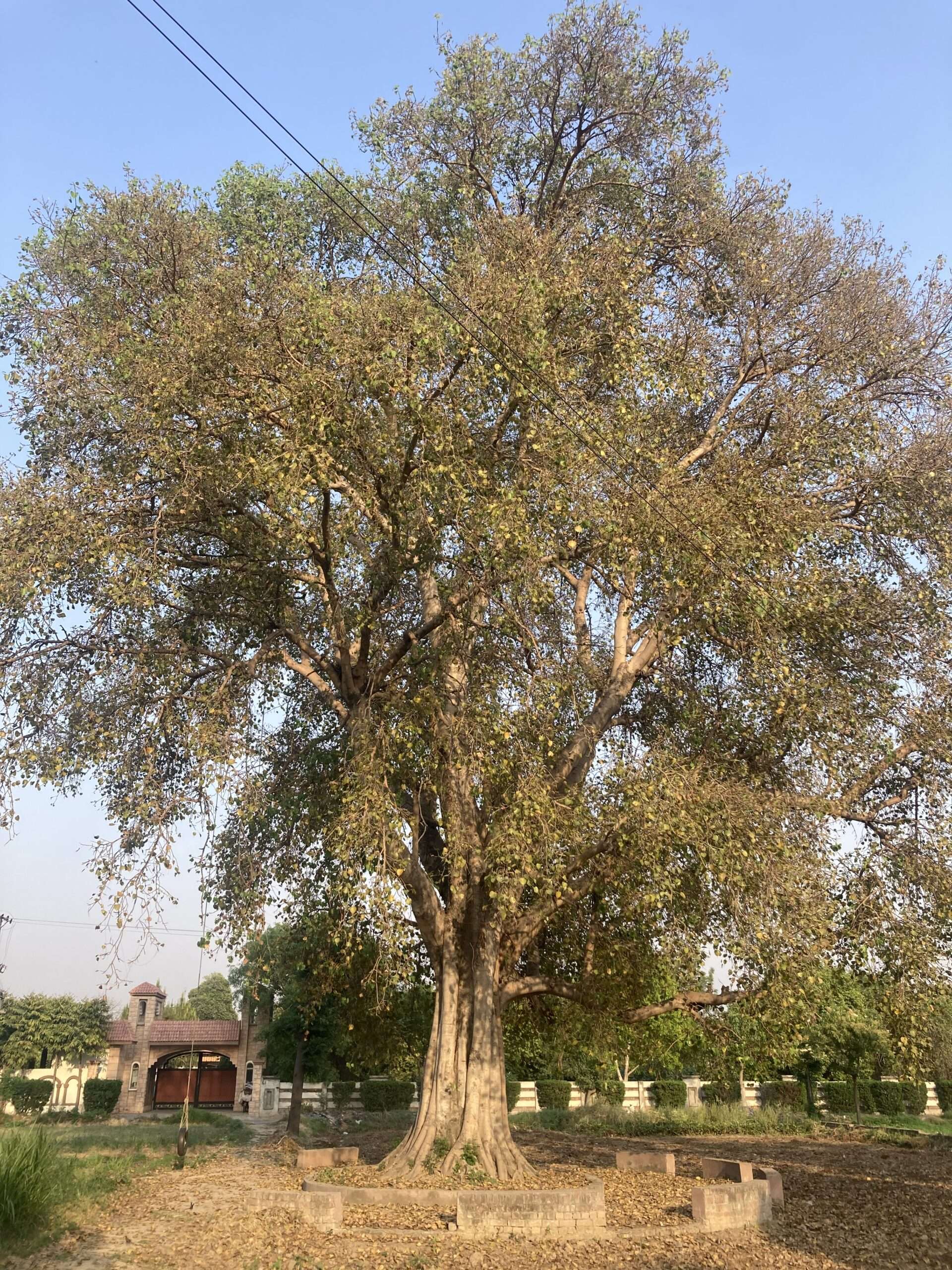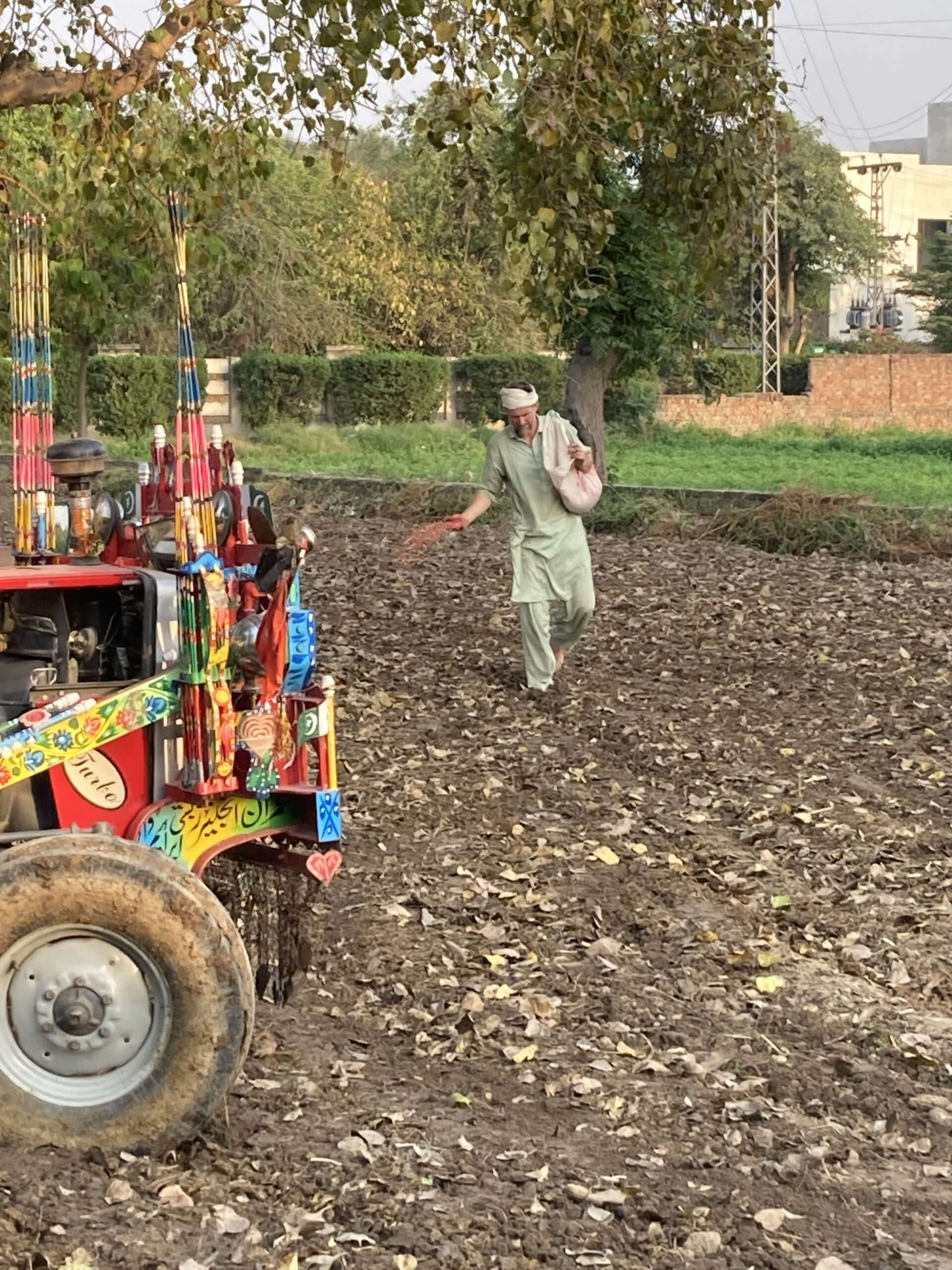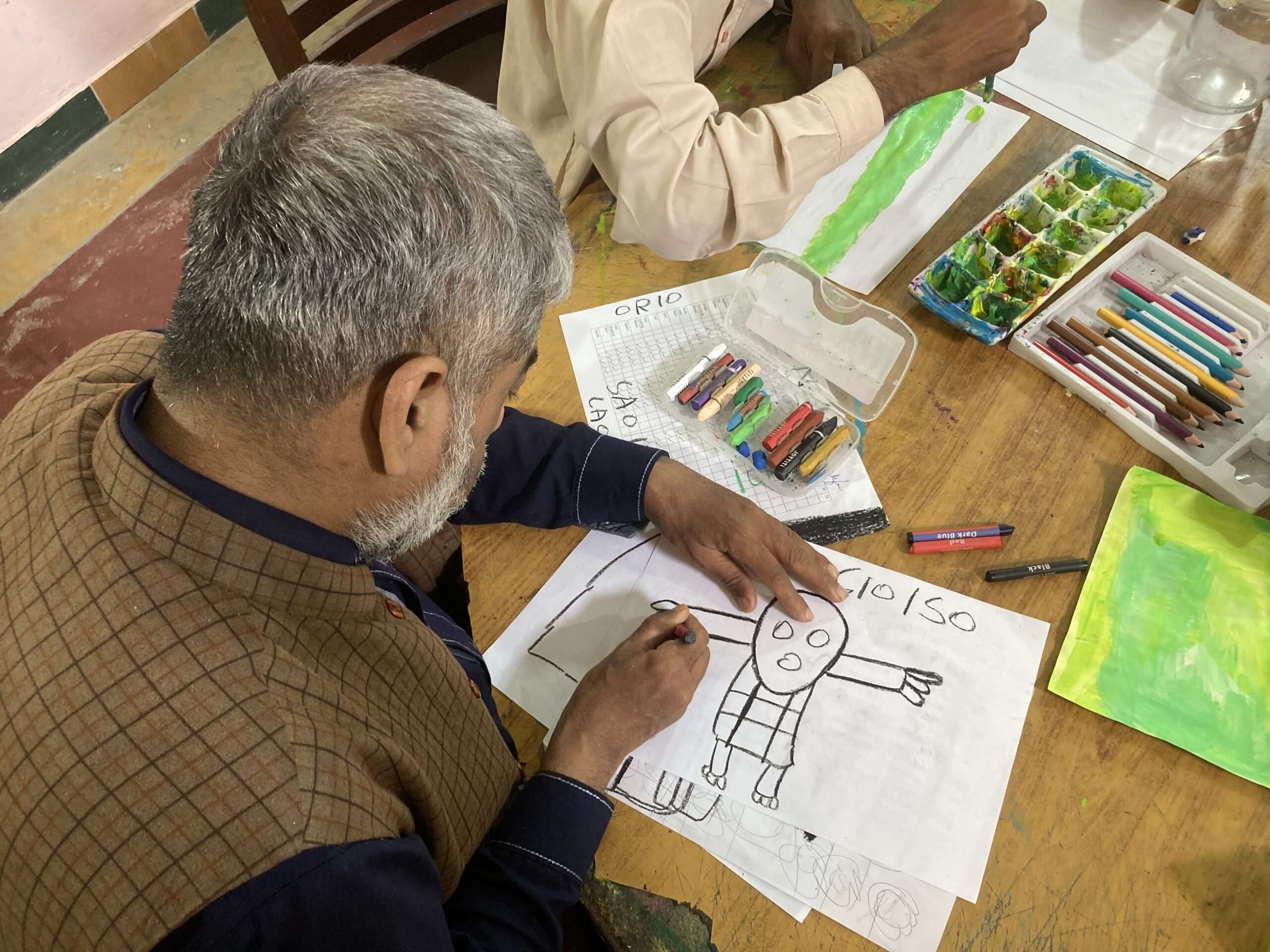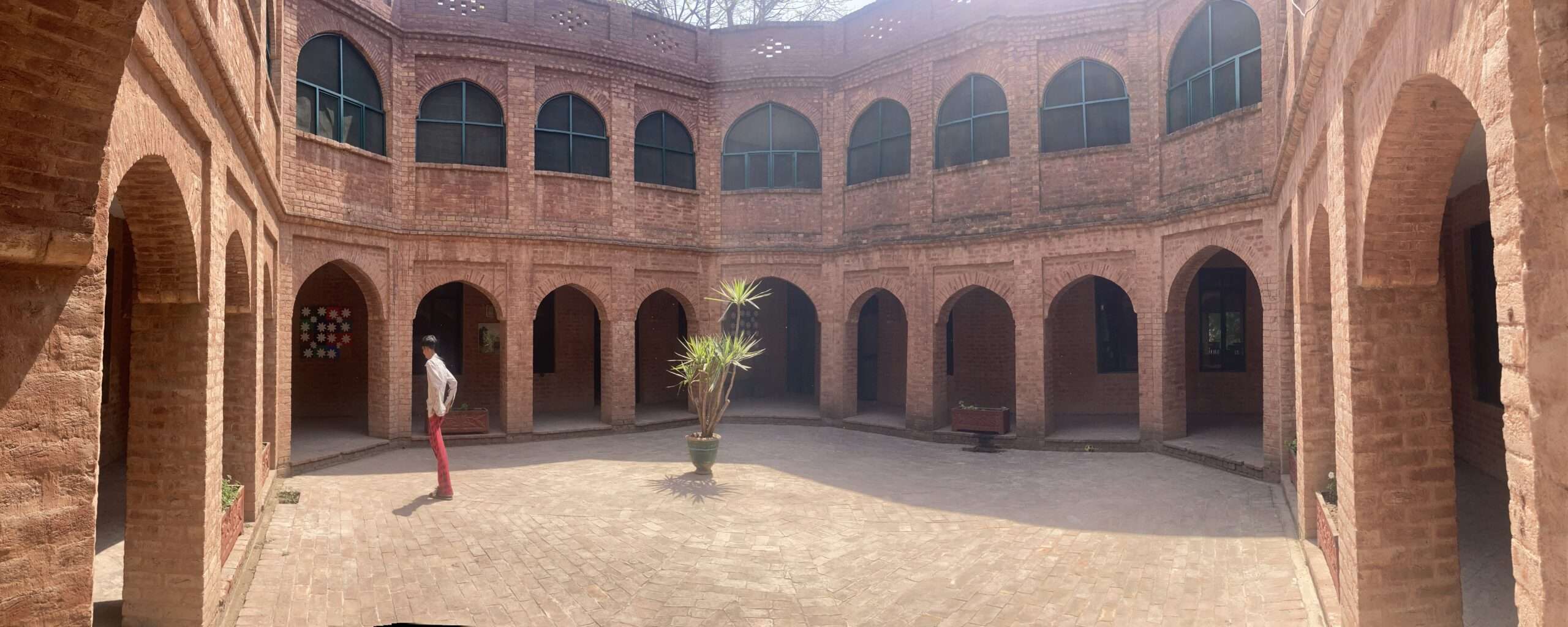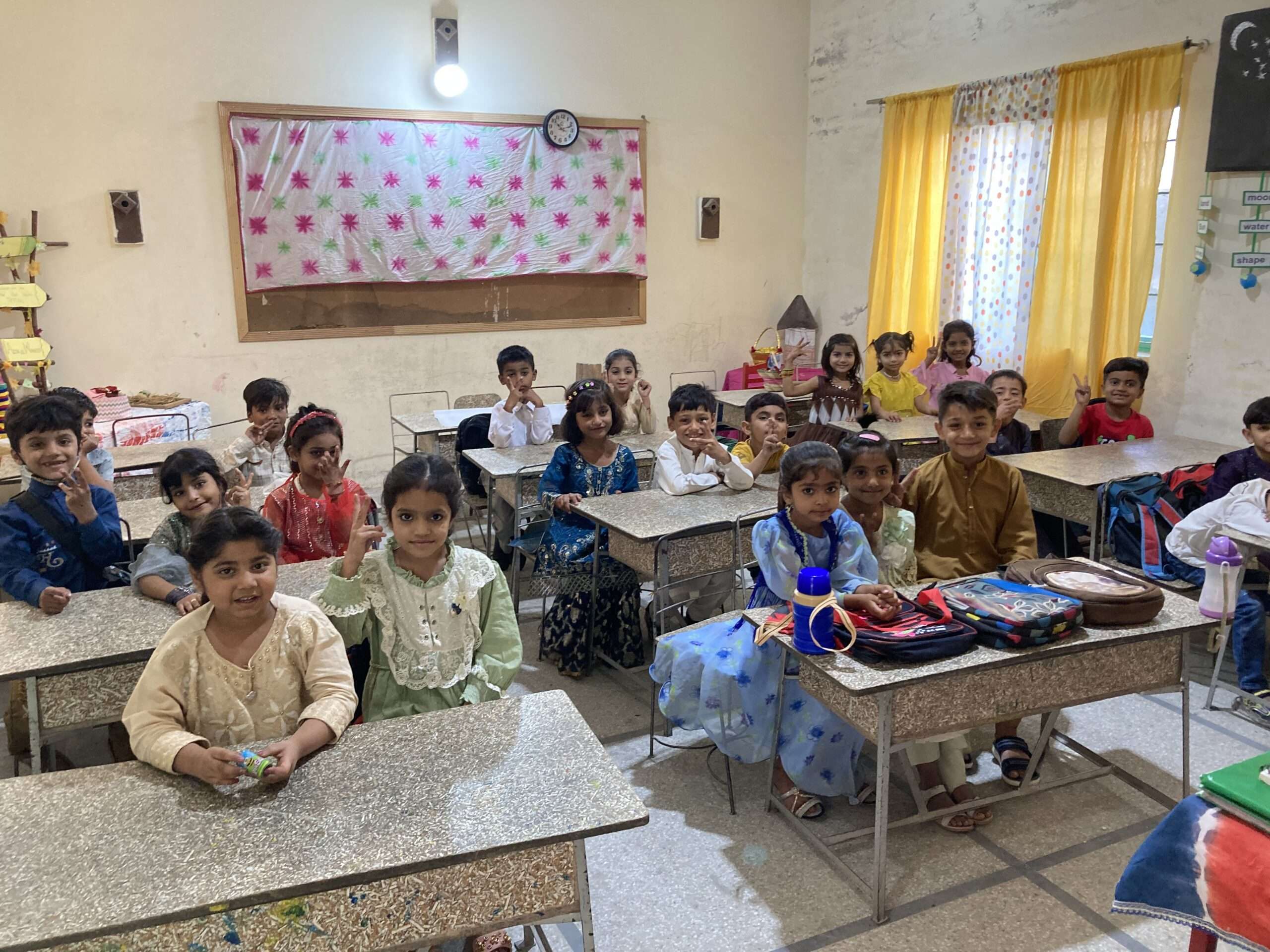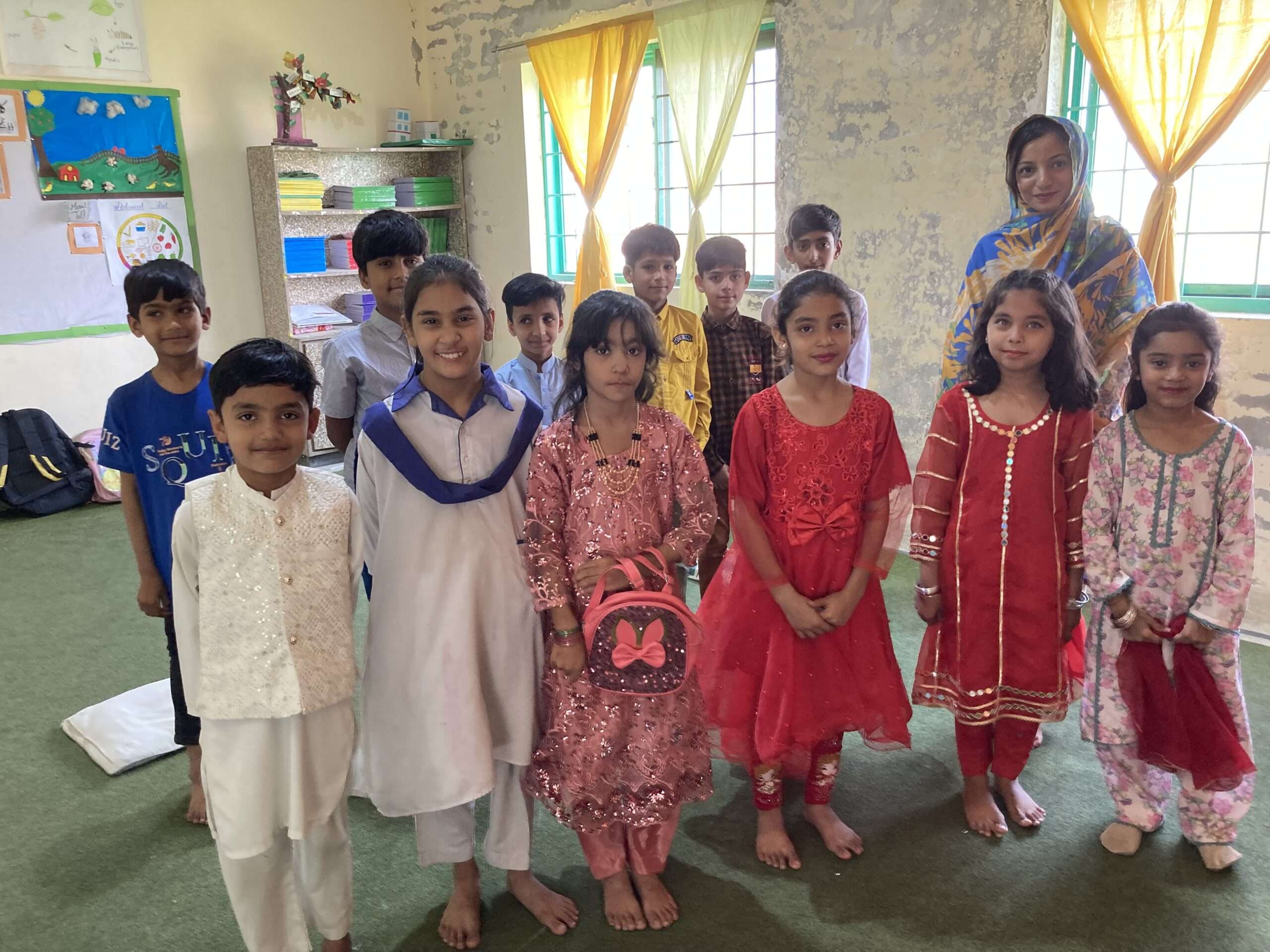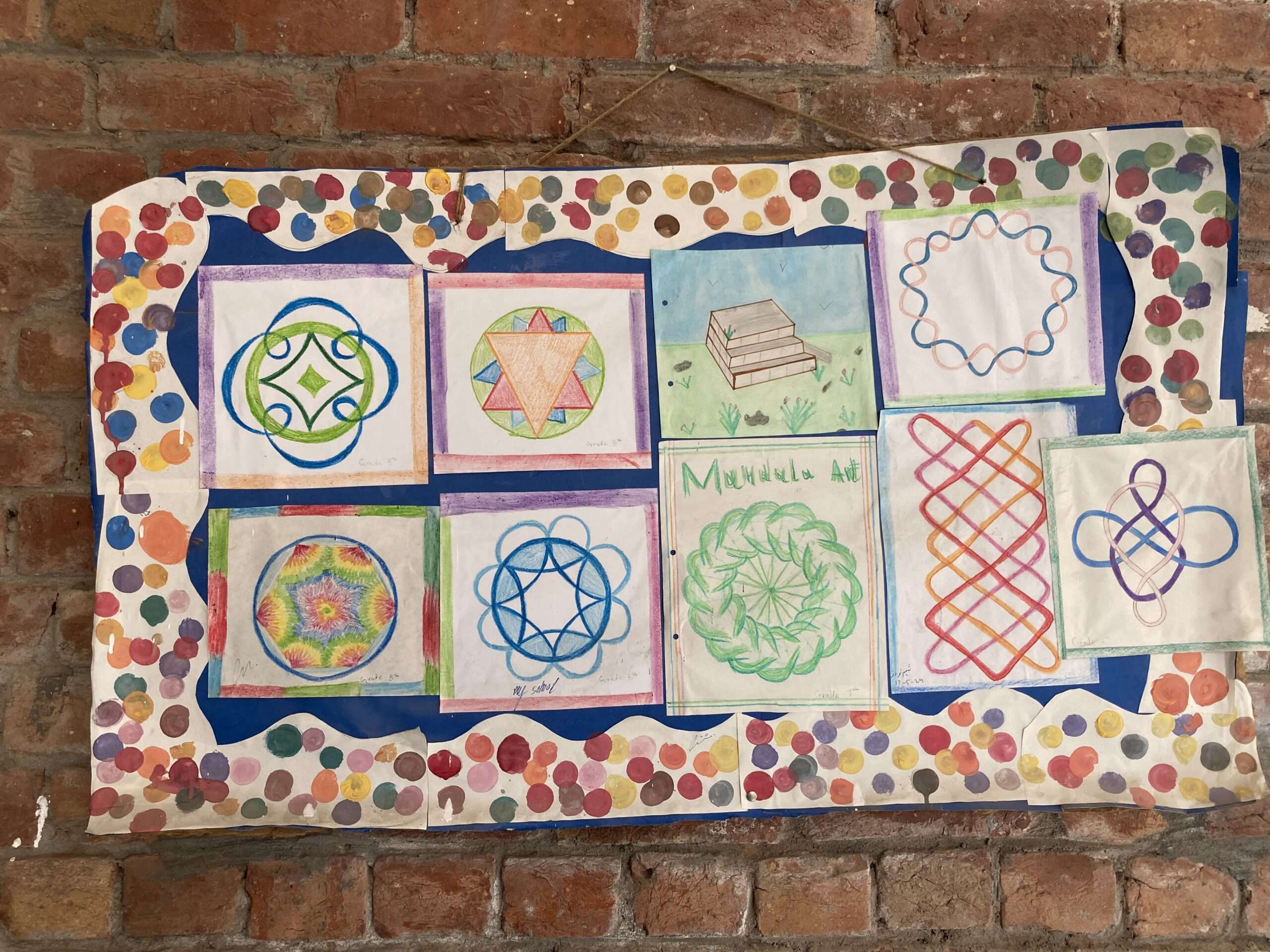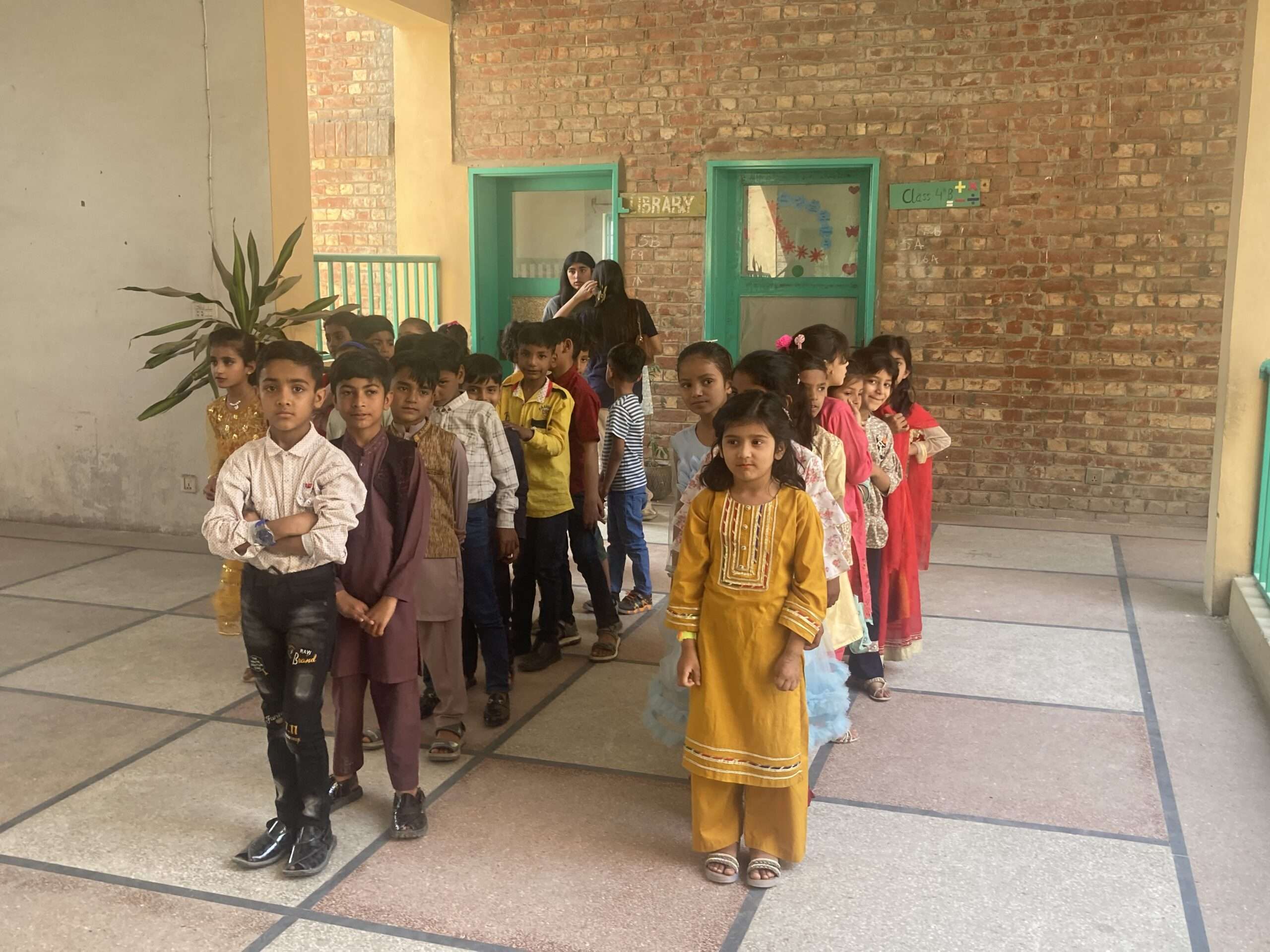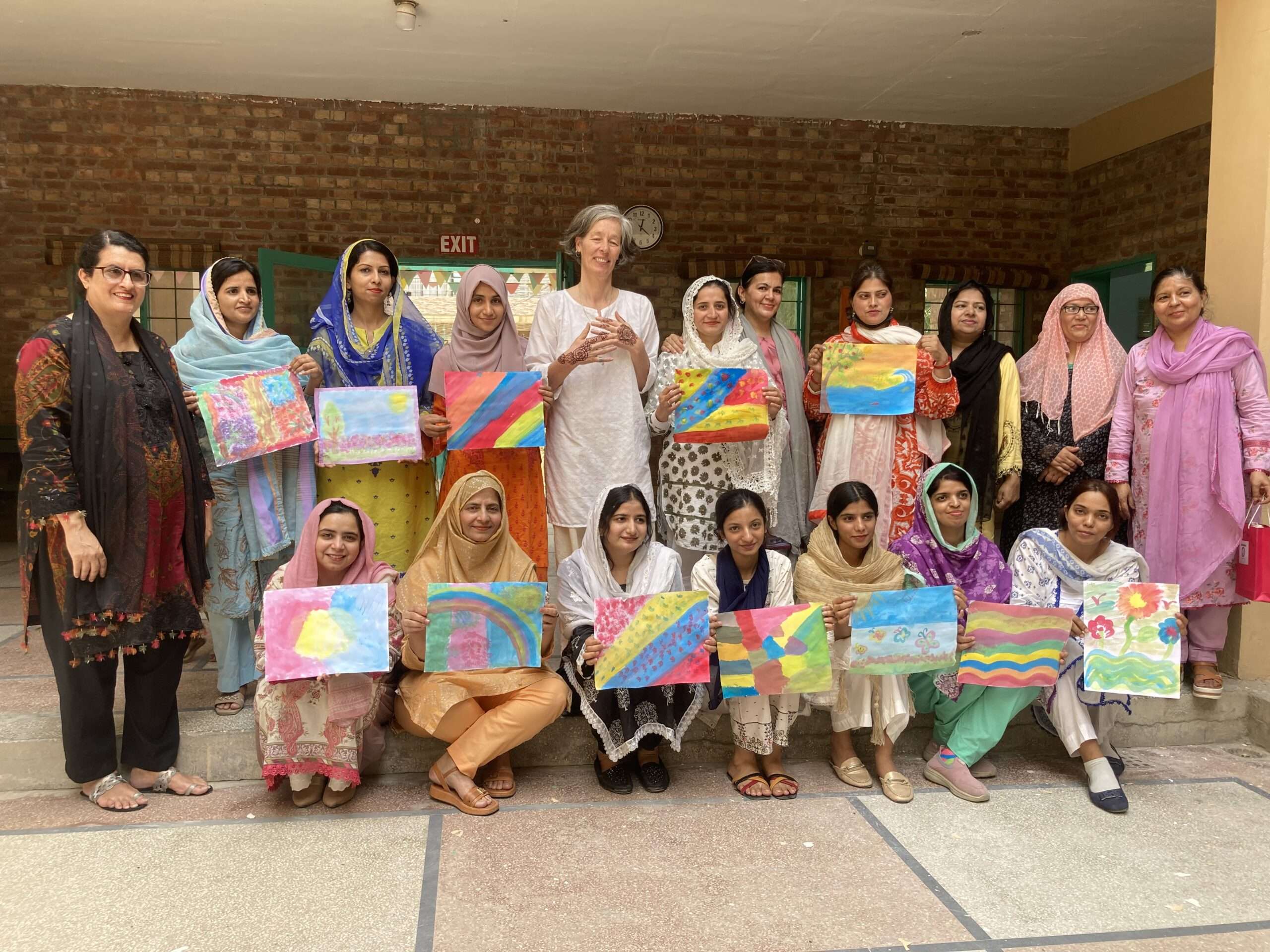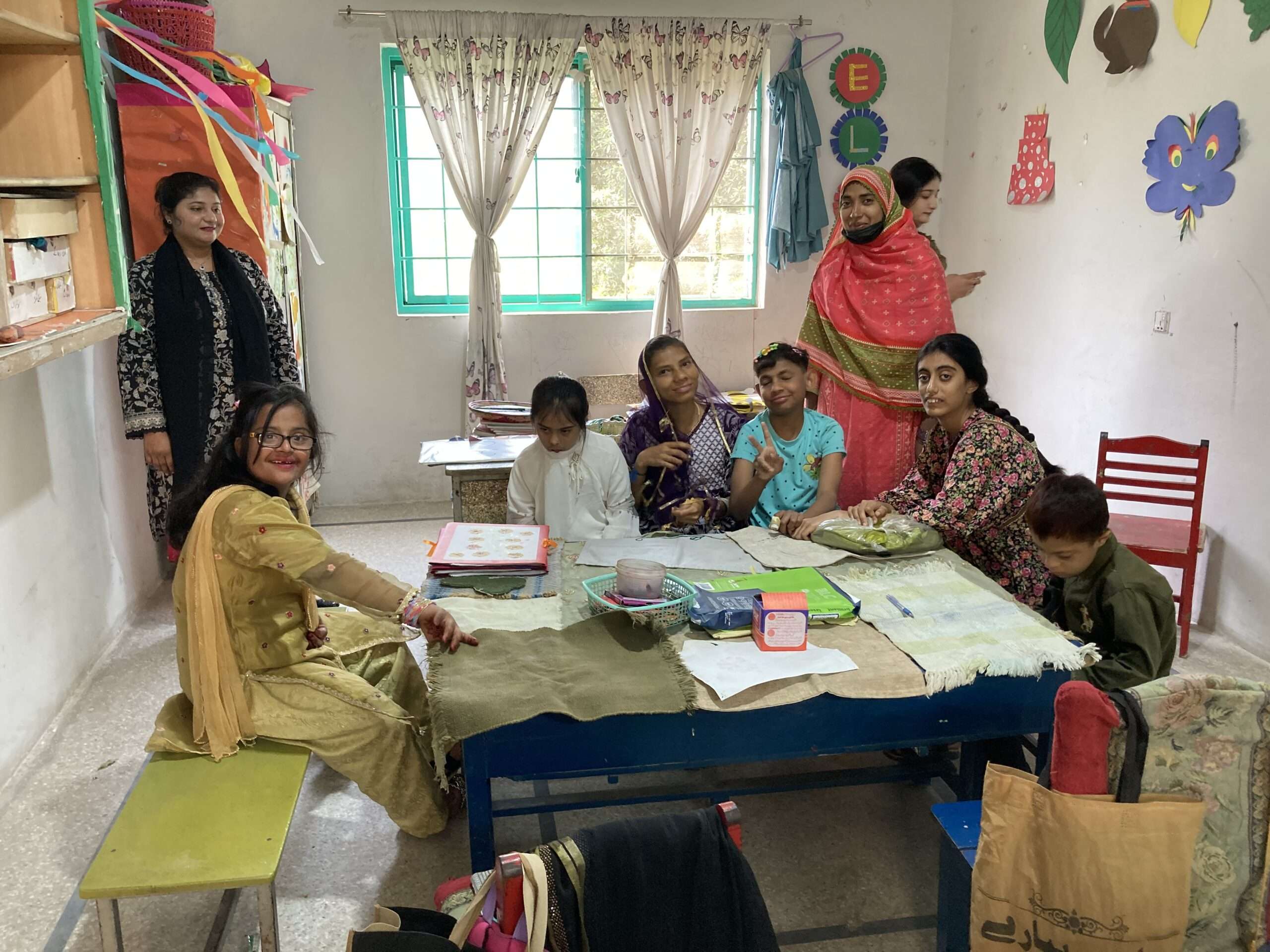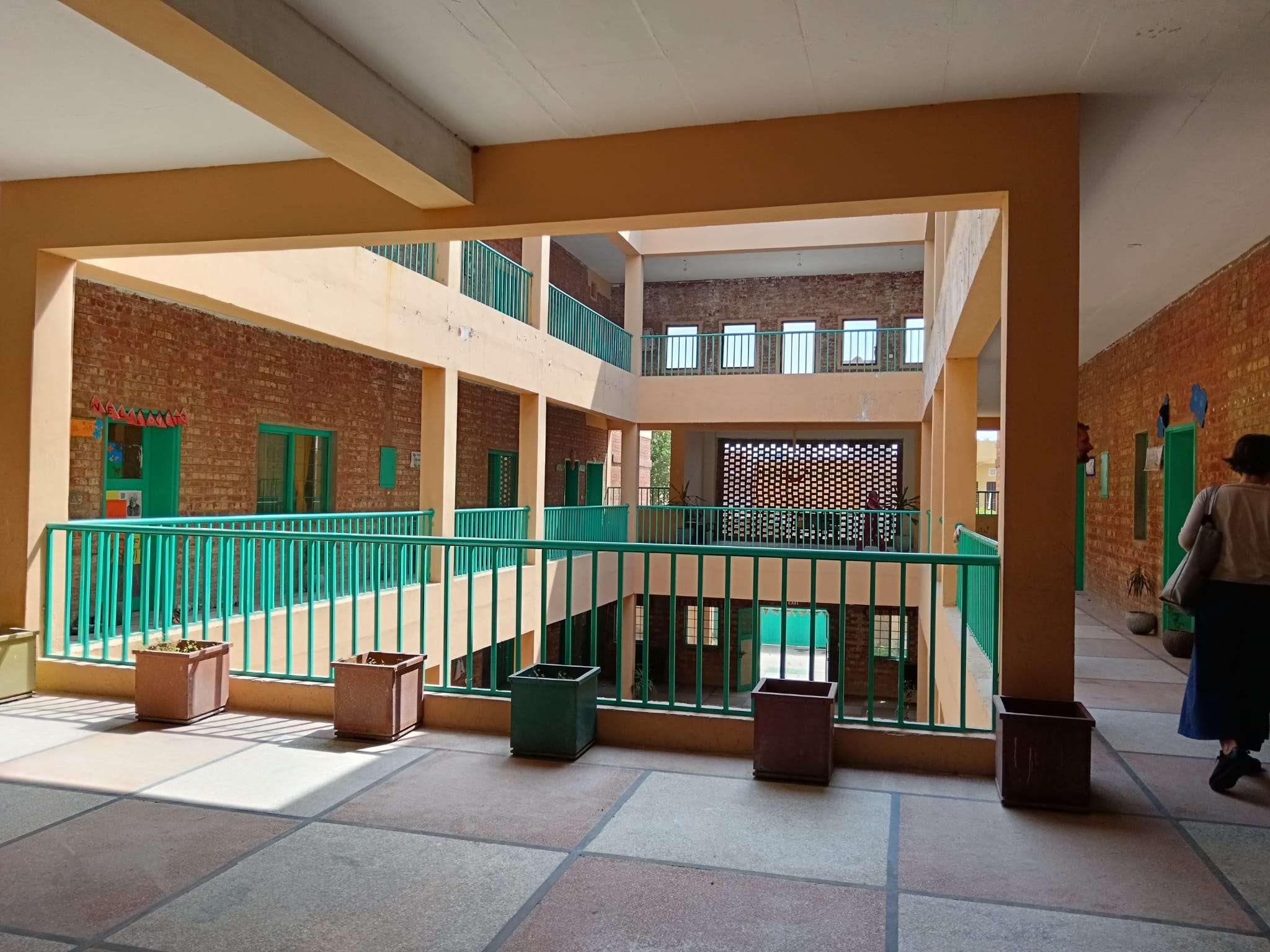Visit to Roshni community in Lahore, Pakistan
by Sonja Zausch
At the beginning of April, I flew to Pakistan at the invitation of Mr. Durrani, Managing Director, and Alexander Kühne, a long-standing German member of the management team, house coordinator, and farmer, to get to know the Roshni community.
The two-week stay, which included two trips outside the city, was a wonderful experience that allowed me to deeply question my assumptions and gain a comprehensive understanding of the field of work, with all its challenges and the incredibly valuable work that is being done in this country for people with special needs.
THE ROSHNI COMMUNITY
The journey and its course were like a process straight out of a “Theory U picture book” for me!
At first, I was very busy comparing my experiences there with my previous experiences. This happens subconsciously, but it can be a powerful experience: awakening to the unfamiliar!
As my experience continued, I began to bring what I was seeing and experiencing into dialogue with my own experiences and to ask myself deeper questions about why things were the way they were. I tried to recognize and understand.
This made me feel and empathize. How is the person standing in front of me feeling, making contact with me with very challenging gestures and noises? So much excitement. How is the person who repeatedly approaches me with a serious expression, looks deeply into my eyes, speaks precise words to me in Urdu, and then turns away very determinedly and walks away? A short time later, he comes back—such determination.
Or another man who greeted me countless times a day with “Hello” – persistently and always incredibly cheerful! – infinite joy at seeing me again.
Examples of the wonderful moments that have left a deep impression on me: regardless of the quality of the voice or language I encountered, I was able to connect with the other person purely through my inner experience!
These profound encounters helped me to relate to the questions posed by the management team: What methods and structures can we use to shape cooperation and thus also the living conditions for everyone in Roshni?
The challenges ahead are extensive, and after many discussions, I can summarize them as follows:
34 men and one woman with special needs live and work in two beautiful, spacious houses built in the traditional architectural style with red clay bricks, which to me look almost like monasteries (with inner courtyards, round arches, round domes, and walkways). Approximately 20 men and three women, some of whom live on site and others who come from the surrounding area, work in residential care and in the five workshops—bakery, woodworking, textiles, art, and agriculture with twelve cows and 40 chickens—as well as in administration.
Approximately 30% of clients live with severe psychiatric diagnoses, 30% have a high need for support due to cognitive impairments, and 40% are able to produce something with support and remain engaged in an activity for a longer period of time. Due to the high degree of individualization among clients, the challenges for employees are enormous.
There is no professional training for employees. Some of them are very young, extremely ambitious, and deeply committed to helping people, but they are overwhelmed by the behavior of the clients.
With his entrepreneurial spirit, Mr. Durrani has a great gift for building a strong network with many other social institutions and companies. However, no other organization in this network has comparable requirements.
Unfortunately, the clients have had virtually no access to early support, school education or informal education in their lives and come to Roshni as young adults. By then, they have already experienced a lot in their families of origin, most of which is not respectful or loving. This means that emotional, rhythmic, hygienic and social skills are only gradually developed and trained in adulthood.
Employees have no role models to show them what their lives could look like. This is partly because there is no training for this and partly because there are no comparable places. What does exist are educational opportunities for young people with special needs in the transition from school to work, as well as training for people with physical assistance needs, but no specialist training.
For some time now, we have been enjoying a fruitful collaboration with the Hunar Foundation. Here, people with little formal education are trained as nursing assistants over a period of six months. During a meeting with the management of this training program, it became clear that there is no focus on working with people with cognitive impairments. The training is geared towards working in hospitals and nursing homes.
We were able to spark great interest in our field of work among the two psychologists in charge, and on one day I was allowed to teach a unit on professional conduct when working with adults with special needs, using social art exercises, for the two courses currently running. It became clear that this is an essential part of the curriculum, and there is now a desire to incorporate this topic into the assistant training program on a regular basis. I hope that a colleague from Roshni will take on this task.
Furthermore, during the second week of my stay, Roshni’s colleagues took a lot of time to look at the work in the organization together and find structures that meet the challenges. This is because the current structure in terms of living arrangements and daily routines makes it difficult to meet the diverse needs of the clients or to work on adequate educational initiatives in line with the UN CRPD.
Through careful discussions, we were able to gain a deep understanding of which offers are suitable for the target groups.
Over the course of the week, we developed a concept that highlights prototypes, small moments of restructuring, and thus creates structures and activities that correspond to people’s skill sets.
I wish my colleagues courage, perseverance, and determination to implement these practical ideas step by step.
Another topic we worked on was finding a simple method of “client observation” as a practical tool that can be used by employees as a method of perception and reflection, including documentation. We were able to draft a short guide with a structured approach for this purpose.
We will stay in touch – that goes without saying, because the relationship and professional collaboration were wonderful, trusting, and forward-looking, and some of our employees have strong ties to the location and are interested in its development – Inshallah!
Fotos: privat source
GREEN EARTH ROSHNI SCHOOL
What Rudolf Steiner created over 100 years ago with the first Waldorf school was taken up in Lahore 19 years ago: a Waldorf school (up to 8th grade) was founded with the support of an entrepreneur, the founder of GREEN EARTH. The students are children of employees of the company, colleagues of the Roshni community, and children from the immediate vicinity, regardless of their family or financial background, as well as children with special needs.
A colorful, inclusive educational institution with a kindergarten and many dedicated teachers who identify with Waldorf education—the teaching staff is exclusively female, and 80% of the students are girls! Women power—I encountered very self-confident young girls and teachers!
Andreas Pelzer, a Waldorf teacher from Berlin, has been coming to Lahore since the school was founded in 2006 to work with the teachers on Waldorf education. In recent months, the teachers have been able to take part in an online training course, which they found very inspiring.
On Good Friday – not a public holiday in an Islamic country, but due to the large number of Christians in Roshni and at the school – the children had the day off and we were able to offer further training for the teachers: eurythmy for the rhythmic part of the morning and the eurythmic alphabet as support for learning to read and write. It was a very joyful session with lots of interest and humor!
Surprisingly, Farrah Hussein, a Pakistani anthroposophical pediatrician from London, was also in Lahore at the time. We spent a day together at the school, partly to talk to the teachers about children with special needs, as there is no training for this either. The good news is that Farrah will be teaching three online modules on basic constitutional diagnostics in the summer. This is a wonderful offer and a start that is sure to be followed up. Thank you!
Fotos: privat source
Community Based Rehabilitation
The third initiative in Roshni is a collaboration with the Amin Maktab Foundation and focuses on outreach social work in rural areas with families who have children with special needs.
People are being trained and small centers of expertise developed to support families in challenging situations. This is extremely valuable work that is continuing to expand and is also being accompanied by scientific research.
We very much hope to be able to showcase this work in our field in due course.
However, I didn’t have the opportunity to learn more about this field of work. It was too much in terms of content and time.
All organizations within the Roshni network that I am aware of are financed entirely by donations.
If you would like to support the work in Roshni and the school, please donate here.


